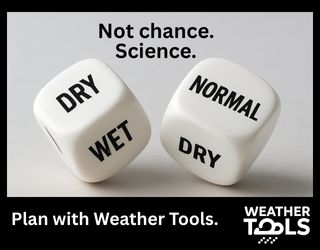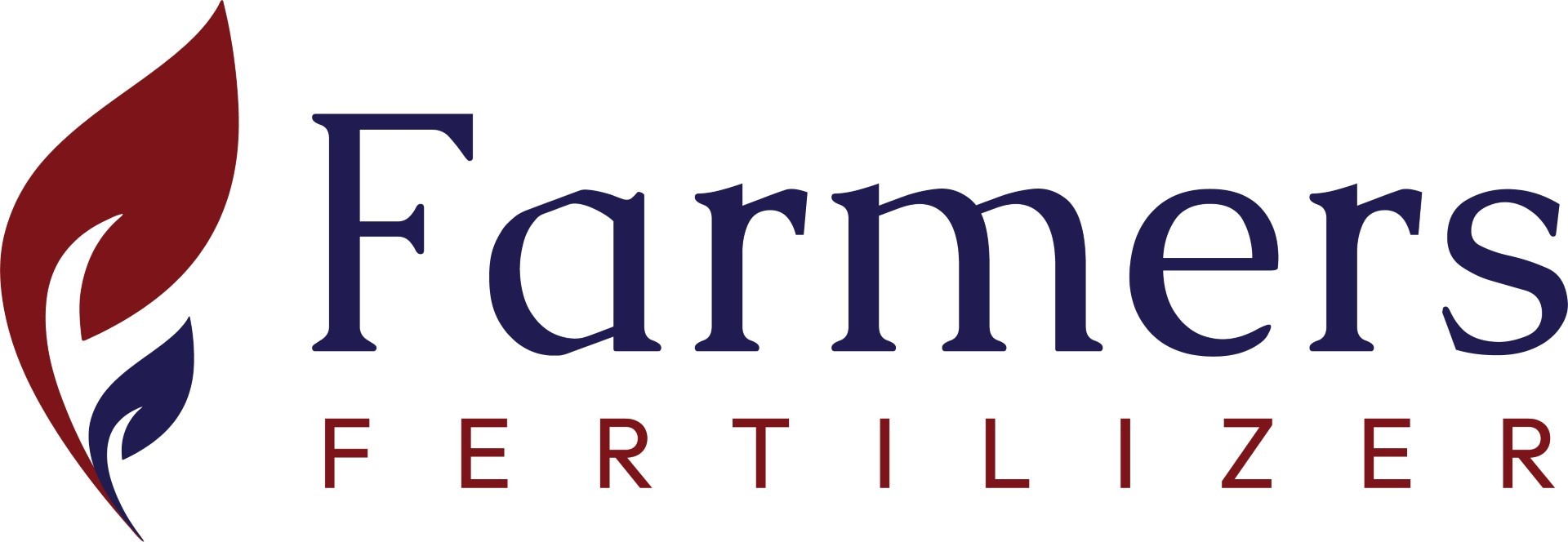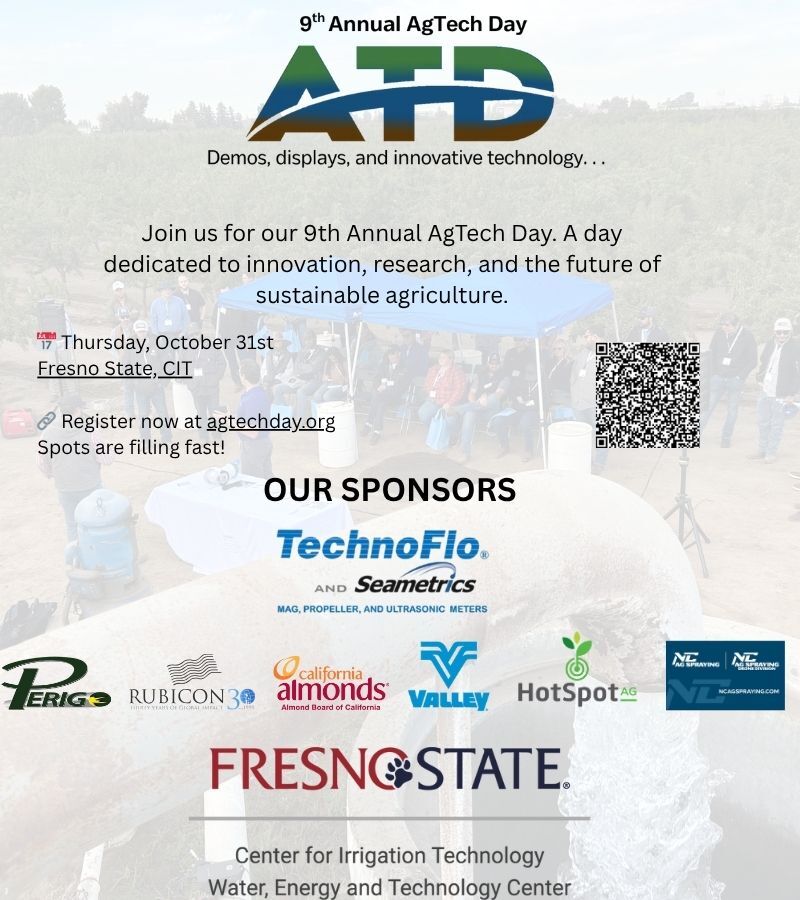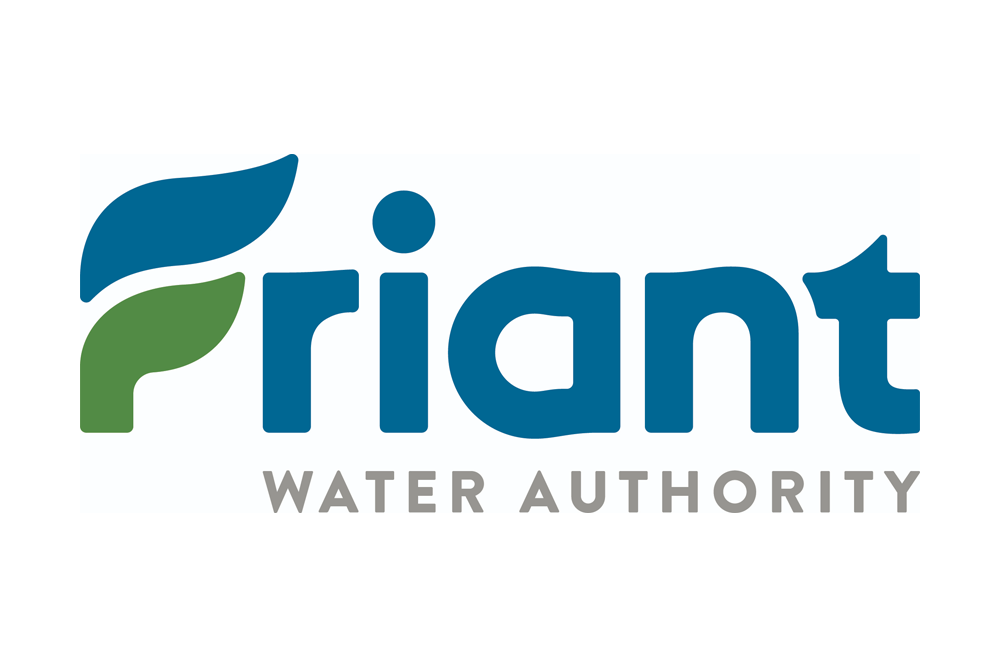The Madera County GSA Committee meeting was called to order at 1:32 p.m. on Tuesday, October 7, 2025 by Chair Leticia Gonzalez with fellow Supervisor Robert Macaulay, staff and a few members of the public in attendance in person and online. She led the Pledge and then invited public comment. County Counsel asked for a moment to inform the audience about committee actions to be considered at the next Supervisors’ meeting on October 14. She said because several members would not be available at the 1:30 time slot when GSA matters are usually considered, she explained the GSA items to be voted on would appear in the regular order of business which begins at 10 a.m.
MAWA
Continuing with public comment, Noah Lopez representing Madera Ag Water Association (MAWA), called attention to the letter his group had submitted asking that the agenda items for this meeting be brought back next month for further discussion rather than action. He also invited everyone to a MAWA informational meeting to be held October 29 when members and growers could comment on policies such as carry-over credits, analysis of the GSA finances, domestic well mitigation, satellite measurement methods and demand management policies, all on the agenda as either action or information items for this meeting.
Association (MAWA), called attention to the letter his group had submitted asking that the agenda items for this meeting be brought back next month for further discussion rather than action. He also invited everyone to a MAWA informational meeting to be held October 29 when members and growers could comment on policies such as carry-over credits, analysis of the GSA finances, domestic well mitigation, satellite measurement methods and demand management policies, all on the agenda as either action or information items for this meeting.
Next, local grower Ralph Pistoresi told a story of his daughter’s lemonade stand in which she told her friends the money to purchase supplies would have to be paid back before any proceeds were distributed. Pistoresi made the analogy to the $500,000 increase in his property tax bill due to funds that were collected by the county for domestic well mitigation. He said it’s not fair that the farmers who take the risk of growing should have to underwrite all the costs. He likened it to communism and said the board before taking action should always ask if it’s right and if it’s fair.
Domestic Wells
With no further public comment, the committee approved the minutes from the meeting held on September 2, then moved into consideration of a resolution to adopt the revised domestic well mitigation program for the Delta – Mendota Subbasin. Department of Water & Natural Resources staff member Jacinta Cabral presented the detail. And after that, it was explained that since there are no domestic wells in this jurisdiction, there is no funding source, and no one is financially impacted. Even so, the revisions are to be included in the revised GSP due to DWR requirements. Supervisor Macaulay asked what the qualifications are for a domestic well to receive mitigation funds, up to $35,000. It was explained that a property owner first completes an application which is then investigated in detail as outlined in the document.
Mr. Pistoresi spoke again when public comment was invited. He said he owns a house in the Delta-Mendota area with water only 15 feet below the surface, very much unlike the eastern and northern parts of the county. He said mitigation shouldn’t mean that you just pay for anyone’s dry well. He said there needs to be a better plan that might give preference to people who offer to help pay for well replacement. He proposed instead of outright funding, a low or no interest loan might be offered. He said a person receiving the $35,000 mitigation funds should have to pay that back if the property is sold. He said that some people from the white area should be on this committee since they are providing the funds.
Stephanie Anagnoson, Department director, reminded the group that there is no funding for this Delta – Mendota Subbasin because there are no domestic wells within the jurisdiction.
Supervisors Gonzalez and Macaulay voted to approve the resolution which will be submitted to the full board, as are all actions taken by the committee. The county board of supervisors serves as the board of directors of the GSA.
Next, staff member Emily Garcia, senior administrative analyst, presented information recommending funds which had been collected as penalty for those exceeding their allocations be transferred to the Chowchilla Water District which has responsibility for administering the well mitigation program for the Chowchilla Subbasin. The amount collected is $100,700 from a total of $274,000 assessed but as yet not received by tax officials. In response to Supervisor Macaulay’s question, it was noted funds collected from 2023 have already been turned over.
With public comment invited, Mr. Pistoresi asked if it had been determined that penalties for exceeding allocations could indeed be attached to property tax bills. He questioned the legality of that approach. Anagnoson replied that county tax bills are used to collect a wide range of fees throughout California. In Madera County fees for community college funding, for example, and even fees for the Madera Irrigation District are on tax bills. This transfer of funds was then approved by the supervisors’ vote.
Carry Over Credits
The next topic was presented as an item for action… a recommendation to the board of supervisors adopting a policy for allocation of carry-over credits and penalties at the end of the year if a farm unit is reorganized. A staff member whose name we didn’t catch presented the policy in which the county GSA will allocate carry over water credits and / or penalties based on sales, lease or other written agreements between land owners. With no agreement the default position is termed “volumetric” which means penalties and credits accruing to farm units will be applied to the parcels making up the farm units. Several examples and scenarios were given using simple two-parcel farm units.
With public comment invited, local grower Larkin Harman objected to this “volumetric” approach based on how credits on a leased property in a farm unit she managed had been apportioned. In the meeting materials was a copy of her lease of about 1,000 acres made up of three parcels, most recently for 2024. There was nothing in the lease referencing allocations, carry over or penalties. She had presented this objection at the last meeting and once again explained that 100 acres had been used for only dry land farming while more water had been applied to better land. Now, the problem parcel was receiving a higher carryover, in effect, she said, “rewarding” the problem parcel and also in effect penalizing her for using proper farming practices. She said the purpose of farm units is to allow appropriate management decisions but with this policy you’re tying the hands particularly of lessees of farmland. She said if this is to be the policy, please don’t make it retroactive, since her situation was for land leased and farmed in 2024 and several years before.
Next Karoun Samran, area grower and Chowchilla Water District vice president, spoke in favor of the proposed policy. He said this policy provides opportunity for creative solutions to the problem of limited water. He said as a younger farmer, he is looking beyond 2040 – when SGMA requires water balance. He said people will start making decisions about land values based on water.
Next, MAWA’s Lopez said that people will start getting creative with farm units and that his group supports this policy. It allows growers to work out agreements among themselves. And while supporting the policy, he suggested that the county develop a work sheet identifying the details about allocations that growers should consider in their lease and sales agreements. He asked again for the county to develop a detailed summary of the resolutions and regulations pertaining to requirements of the GSA. Speaking next, Devin Aviles of AgWorld Cooperative said that the Westlands Water District has a water transfer agreement that might be used as a model here.
Anagnoson commented that her department has started to develop a work sheet for this purpose. She added that using the volumetric approach being recommended, it would not be retroactive. With no further discussion, the supervisors approved this action to be sent to the full board.
Subsidence Mitigation
The next information presented by a staff member was a contract between Davids Engineering and the Chowchilla Water District for developing a demand management and subsidence mitigation program in the Chowchilla Subbasin, The $193,400 cost would be shared proportionally, based on the areas covered by four GSAs involved – Chowchilla, Merced, Triangle T and Madera. The State Water Resources Control Board had indicated before returning the subbasin to DWR jurisdiction that such a plan should be in place with specific triggers indicated by ground water levels. The deliverables from Davidson were specified in the presentation as were the amounts due from the four GSAs. Macaulay asked if this item would come back to the committee and Anagnoson explained that the MOU regarding the contract among the parties would be acted upon by the subbasin advisory committee, a separate body.
Finances
The next item for information was the GSA financial analysis presented by staffer Ms. Garcia. A spread sheet with detail in the county budget format was available along with graphs, pie charts and a good bit of explanatory material. Six years of income and expense totals were presented with revenue for 2024 – 2025 totaling $5.7 million coming mainly from grants and the GSA administrative fee along with penalties and interest. Expenses for this same year amount to about $4.7 million in categories labeled regulatory compliance, professional support services, staffing and admin. Detail of these expenses was shown along with current cost saving measures based on work done in house. Looking ahead, expenditures are anticipated for the Chowchilla GSP amendment, Delta-Mendota GSP revisions, gaps in recharge grant funding, augmenting the well monitoring network, land repurposing monitoring, the potential groundwater accounting platform and further publicity efforts beyond in-house capabilities.
labeled regulatory compliance, professional support services, staffing and admin. Detail of these expenses was shown along with current cost saving measures based on work done in house. Looking ahead, expenditures are anticipated for the Chowchilla GSP amendment, Delta-Mendota GSP revisions, gaps in recharge grant funding, augmenting the well monitoring network, land repurposing monitoring, the potential groundwater accounting platform and further publicity efforts beyond in-house capabilities.
Public comment included Noah Lopez saying MAWA appreciates the quarterly updates. He suggested a review in January when the amount of penalty payments would be known which might allow reconsideration of the per acre well mitigation fee. Devin Aviles asked if it would be possible to receive this financial information before committee meetings.
The staff comment was that February would allow a more complete accounting of funds collected. Macaulay added that the board wants to keep fees to a minimum so seeing the amount of penalties collected would help with budgeting.
Anagnoson presented the information about a domestic well mitigation program in the Madera Subbasin. She said that initially the seven GSAs had worked to develop a common program all could support. But in August, she said several GSAs said they wanted a different cost share approach and that they would only pay for dry wells in their own jurisdictions. As a result, the Madera GSA must work alone to fund mitigation on wells in its district, an estimated 25 wells in the first five years, with $35,000 available per well. Information presented here included drafts of program rules, program application, proposal for a program manager and for qualified well drillers. These details can be found on the Department’s website.
Following this detailed presentation, Supervisor Macaulay asked what factors might cause a denial of a mitigation application. The answer basically, well problems not related to dropping water levels. Noah Lopez said he appreciated the availability of all the draft documents.
I In The Sky
Consideration of satellite measurement services was next on the agenda as an information item with staff member Aleta Allen presenting. She had information about the survey of grower preferences with Irriwatch receiving the most support in terms of both numbers of growers and acres farmed. Currently, Madera is the only GSA offering growers two satellite services, Irriwatch (Hydrosat) and Land IQ, which in 2025 amounts to expenditures totaling $467,819.75. The recommendation for 2026 is a single service, Irriwatch.
amounts to expenditures totaling $467,819.75. The recommendation for 2026 is a single service, Irriwatch.
Comments included grower Mark Peters saying he would prefer that both services are offered along with the new accounting platform that is being considered from several vendors.
How Do They Do It?
A final presentation from Anagnoson was her response to the previous request for information about how other GSAs in the Valley are handling water allocations and penalties. She reviewed the timeline of how Madera had considered and implemented its demand management program beginning in 2020, with a sliding scale of $100 / AF penalty in 2023, $200 / AF in 2024 and $300 / AF in 2025. Next year it’s scheduled to go to $400 and finally $500 in 2027. She said most other GSAs had immediately implemented, a $500 / AF penalty, the maximum allowed under SGMA.
Presenting a detailed chart, she showed that in the Madera Subbasin the use of transitional water i.e., overdraft had declined only slightly from 198,400 AF in 2022 through 191,700 AF through 2025, using August 31 as the cutoff for each year. She said staff is soliciting feedback on ideas to reduce transitional water use at a slightly higher rate. Possibilities are increasing the penalty per AF to $500 in 2026, rather than 2027. Also restrict carry-over to reflect groundwater realities such as decay and time for use. Another possibility would be removing water used over the allocation by a farm unit from next year’s allocation for “repeat offenders.” (Sixteen farms had gone over their allocations for two years and 40 – 50 for all three years.) She said that it is possible to get to a penalty as high as $1000 / AF with even per-day use penalties.
for use. Another possibility would be removing water used over the allocation by a farm unit from next year’s allocation for “repeat offenders.” (Sixteen farms had gone over their allocations for two years and 40 – 50 for all three years.) She said that it is possible to get to a penalty as high as $1000 / AF with even per-day use penalties.
Mark Peters thanked her for the detailed info and said he wished more were here to see it. He urged, though, that next year the $400 penalty remain in place. He said he was interested in seeing how much land fallowing occurs when the penalties are raised. He said he would support a carry-over policy.
Lopez said growers need long term certainty in order to plan for permanent crops. Samran said that with family farming in the South Valley he’s familiar with high penalties but there the possibility of water markets with transfer of credits is available as well. Aviles agreed that a carry-over policy should include some sort of a water market.
Macaulay added he would like to hear some discussion about how to “go after” those who habitually exceed their allocations. Regarding carry-over, he said he agreed there should be some consideration of decay and a time limit.
To finish the meeting, Director Anagnoson spoke about a number or workshops already held or scheduled for later in the month. She said there was to be a Sites Reservoir tour on October 29. She introduced Jerry Meeks, a new county employee who will be managing administrative affairs for the GSA. And finally said the date for the next meeting would be November 12. And the group was reminded that GSA matters for the board of supervisors meeting would not be on the consent agenda but would be considered per the agenda after the 10 a.m. meeting start time.
Supervisor Gonzalez adjourned the meeting at 3:30 p.m.
DISCLAIMER OF RESPONSIBILITY; Waterwrights strives to provide clients with the most complete, up-to-date, and accurate information available. Nevertheless, Waterwrights does not serve as a guarantor of the accuracy or completeness of the information provided, and specifically disclaims any and all responsibility for information that is not accurate, up-to-date, or complete. Waterwrights’ clients therefore rely on the accuracy, completeness and timeliness of information from Waterwrights entirely at their own risk. The opinions expressed in this report are those of the author and do not represent any advertisers or third parties.
ALL RIGHTS RESERVED. Copyright 2025 by WaterWrights.net
Madera County is comprised of three subbasins, designated by the CA Department of Water Resources as critically overdrafted, and “high priority”: (1) the Chowchilla Subbasin; (2) the Madera Subbasin; and (3) a portion of the Delta-Mendota Subbasin. Each of these subbasins submitted a Groundwater Sustainability Plan (GSP) by January 31, 2020. These subbasins are required to achieve “sustainability” by the year 2040. The method by which sustainability will be achieved will be illustrated in the GSP, which was be drafted in partnership by the irrigation district, water districts, cities and Madera County. The Madera County Groundwater Sustainability Agency (GSA) is administered by the Madera County Department of Water and Natural Resources: Stephanie Anagnoson, Director, 200 W. Fourth Street, Madera, CA 93637, (559) 675-7703 x. 2265 or (559) 675-6573. The County of Madera Board of Supervisors is the Board of Directors of the GSA for the three subbasins. The current board is composed of five members: Leticia Gonzalez, Robert Macaulay, Robert Poythress, David Rogers and Jordon Wamhoff..
January 31, 2020. These subbasins are required to achieve “sustainability” by the year 2040. The method by which sustainability will be achieved will be illustrated in the GSP, which was be drafted in partnership by the irrigation district, water districts, cities and Madera County. The Madera County Groundwater Sustainability Agency (GSA) is administered by the Madera County Department of Water and Natural Resources: Stephanie Anagnoson, Director, 200 W. Fourth Street, Madera, CA 93637, (559) 675-7703 x. 2265 or (559) 675-6573. The County of Madera Board of Supervisors is the Board of Directors of the GSA for the three subbasins. The current board is composed of five members: Leticia Gonzalez, Robert Macaulay, Robert Poythress, David Rogers and Jordon Wamhoff..

























